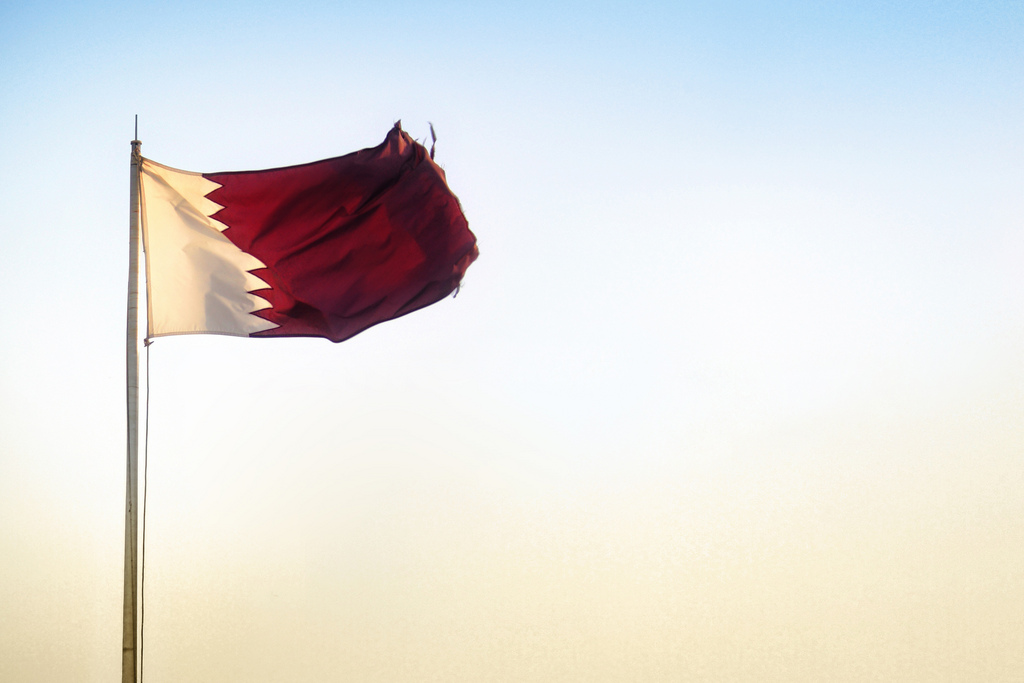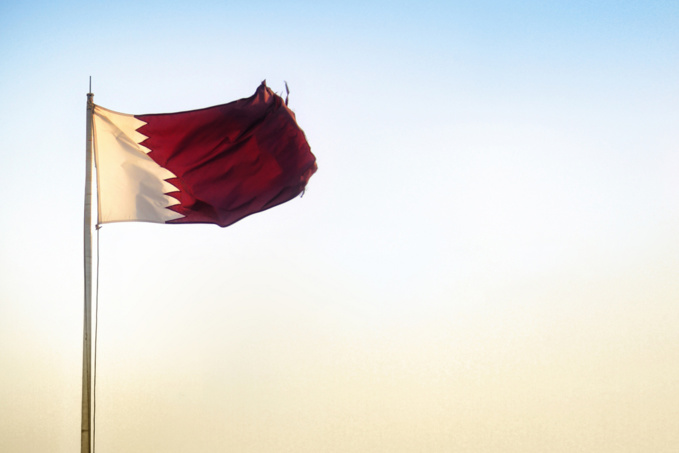Qatar is already a former member of the Council for Cooperation of the Gulf States, so this event could well be called a "geopolitical earthquake". As noted by analysts interviewed by Bloomberg, "this unprecedented step is designed to punish one of the region's financial superpowers for its links with Iran and Islamist groups in the region."
Just a few days after President Trump left the region, this "geopolitical earthquake" broke out between Qatar and other members of the Gulf Cooperation Council and led to severance of diplomatic relations between Bahrain, the United Arab Emirates, Saudi Arabia, Egypt and Qatar. The latter was accused of "spreading chaos" by financing terrorism and supporting Iran. Saudi Arabia, Bahrain, the UAE and Egypt said they would suspend air and sea communications with Qatar. Saudi Arabia also closed land crossings with its neighbor, potentially depriving the state of the possibility of importing across the land border.
Saudi Arabia stated that Qatar supported "terrorist groups with the aim of destabilizing the situation in the region". The authorities of the kingdom accused Qatar of supporting "Iran-backed groups of terrorists " operating in the eastern province of the kingdom. Saudi Arabia, along with Bahrain and the UAE, gave Qatari diplomats 48 hours to leave the country.
Qatar said that they regretted the "unjustified" decision of the Gulf states and called the charges "groundless", saying that they were part of the plan "to impose their will on the state, which in itself is a violation of sovereignty".
Meanwhile, the geopolitical significance of Qatar is difficult to overestimate, given that this country with a population less than the population of Houston and has one of the world's largest sovereign funds with investments of more than $ 335 billion in Volkswagen, Rosneft, Barclays, Credit Suisse and Tiffany.
In addition, Qatar is home to the headquarters of the Central Command of the US Armed Forces in the Middle East. And, of course, Qatar is the largest liquefied natural gas producer and, possibly, the initiator of the six-year Syrian war because of Qatar's desire to build a gas pipeline to Europe via Syria.
Japan's JERA Co, the world's largest buyer of liquefied natural gas, said on Monday that Qatargas had informed him that there would be no impact on LNG shipments after several Middle Eastern countries severed ties with Qatar. JERA in its statement added that "this is a geopolitical issue in the Middle East and there is a possibility that this situation is closely linked to the energy market".
Qatar is the world's largest exporter of liquefied natural gas, while Japan is the largest importer, accounting for about one-third of global shipments.
In April 2017, Qatar established a ban on developing the world's largest natural gas field in an attempt to prevent the expected increase in competition. At the same time, the LNG market is undergoing tremendous changes, as the largest flow of new offers has appeared on the market and most of the supplies come mainly from the USA and Australia.
In 2005, Qatar declared a moratorium on the development of the Northern field, which it shares with Iran. This could give Doha time to study the impact on the field with a rapid increase in output. As a result, annual LNG production would exceed 300 million tons, while in 2016 only about 268 million tons were sold, according to Thomson Reuters.
Iran, which suffers from an acute gas shortage in the domestic market, made a rapid increase in production from South Pars a top priority and signed a preliminary agreement with the French company Total in November 2016 to develop its South Pars II project. Total became the first Western energy company to sign a major deal with Tehran after the lifting of international sanctions. Iran's oil minister also promised in March this year to increase production of the Iranian part of the total field.
Saad Sherida al-Kaabi, executive director of Qatar Petroleum, noted that the decision to cancel the moratorium was not caused by Iran's plan to develop its part of the total field. The economy of Qatar was pressured by the global oil recession. In 2015, Qatar Petroleum fired thousands of workers and froze a number of assets.
While the world was guessing what exactly happened, the Financial Times reported that the catalyst for breaking diplomatic and economic relations with Qatar was the deal concluded by Qatar with Iran and "affiliates" of Al-Qaeda to release members of the Qatari royal family, kindnapped in Iraq while hunting.
Qatar allegedly paid $ 1 billion, of which "$ 700 million was allocated to Iranian representatives and regional Shiite militants whom they support, in addition, Islamist groups in Syria received $ 200 million to $ 300 million, most of the funds went to Tahrir al-Sham, associated with Al-Qaeda.
Commanders of militant groups and government officials in the region told the Financial Times that "Doha spent money in the deal, providing freedom to 26 members of the Qatari family captured during the hunt in southern Iraq, and about 50 militants captured by jihadists in Syria".
And although there is no official evidence, the sources added that the deal, which was concluded in April, increased concern among Qatar's neighbors about the role of the small gas-rich state in a region afflicted by conflicts.
Qatar is positioning itself as a neutral player, who can act as an intermediary in regional conflicts. However, its critics, in particular Saudi Arabia and the UAE, argue that it is profitable for the state to play on both sides and finance radical Islamist groups, most recently in Libya and Syria.
source: ft.com, bloomberg.com, reuters.com
Just a few days after President Trump left the region, this "geopolitical earthquake" broke out between Qatar and other members of the Gulf Cooperation Council and led to severance of diplomatic relations between Bahrain, the United Arab Emirates, Saudi Arabia, Egypt and Qatar. The latter was accused of "spreading chaos" by financing terrorism and supporting Iran. Saudi Arabia, Bahrain, the UAE and Egypt said they would suspend air and sea communications with Qatar. Saudi Arabia also closed land crossings with its neighbor, potentially depriving the state of the possibility of importing across the land border.
Saudi Arabia stated that Qatar supported "terrorist groups with the aim of destabilizing the situation in the region". The authorities of the kingdom accused Qatar of supporting "Iran-backed groups of terrorists " operating in the eastern province of the kingdom. Saudi Arabia, along with Bahrain and the UAE, gave Qatari diplomats 48 hours to leave the country.
Qatar said that they regretted the "unjustified" decision of the Gulf states and called the charges "groundless", saying that they were part of the plan "to impose their will on the state, which in itself is a violation of sovereignty".
Meanwhile, the geopolitical significance of Qatar is difficult to overestimate, given that this country with a population less than the population of Houston and has one of the world's largest sovereign funds with investments of more than $ 335 billion in Volkswagen, Rosneft, Barclays, Credit Suisse and Tiffany.
In addition, Qatar is home to the headquarters of the Central Command of the US Armed Forces in the Middle East. And, of course, Qatar is the largest liquefied natural gas producer and, possibly, the initiator of the six-year Syrian war because of Qatar's desire to build a gas pipeline to Europe via Syria.
Japan's JERA Co, the world's largest buyer of liquefied natural gas, said on Monday that Qatargas had informed him that there would be no impact on LNG shipments after several Middle Eastern countries severed ties with Qatar. JERA in its statement added that "this is a geopolitical issue in the Middle East and there is a possibility that this situation is closely linked to the energy market".
Qatar is the world's largest exporter of liquefied natural gas, while Japan is the largest importer, accounting for about one-third of global shipments.
In April 2017, Qatar established a ban on developing the world's largest natural gas field in an attempt to prevent the expected increase in competition. At the same time, the LNG market is undergoing tremendous changes, as the largest flow of new offers has appeared on the market and most of the supplies come mainly from the USA and Australia.
In 2005, Qatar declared a moratorium on the development of the Northern field, which it shares with Iran. This could give Doha time to study the impact on the field with a rapid increase in output. As a result, annual LNG production would exceed 300 million tons, while in 2016 only about 268 million tons were sold, according to Thomson Reuters.
Iran, which suffers from an acute gas shortage in the domestic market, made a rapid increase in production from South Pars a top priority and signed a preliminary agreement with the French company Total in November 2016 to develop its South Pars II project. Total became the first Western energy company to sign a major deal with Tehran after the lifting of international sanctions. Iran's oil minister also promised in March this year to increase production of the Iranian part of the total field.
Saad Sherida al-Kaabi, executive director of Qatar Petroleum, noted that the decision to cancel the moratorium was not caused by Iran's plan to develop its part of the total field. The economy of Qatar was pressured by the global oil recession. In 2015, Qatar Petroleum fired thousands of workers and froze a number of assets.
While the world was guessing what exactly happened, the Financial Times reported that the catalyst for breaking diplomatic and economic relations with Qatar was the deal concluded by Qatar with Iran and "affiliates" of Al-Qaeda to release members of the Qatari royal family, kindnapped in Iraq while hunting.
Qatar allegedly paid $ 1 billion, of which "$ 700 million was allocated to Iranian representatives and regional Shiite militants whom they support, in addition, Islamist groups in Syria received $ 200 million to $ 300 million, most of the funds went to Tahrir al-Sham, associated with Al-Qaeda.
Commanders of militant groups and government officials in the region told the Financial Times that "Doha spent money in the deal, providing freedom to 26 members of the Qatari family captured during the hunt in southern Iraq, and about 50 militants captured by jihadists in Syria".
And although there is no official evidence, the sources added that the deal, which was concluded in April, increased concern among Qatar's neighbors about the role of the small gas-rich state in a region afflicted by conflicts.
Qatar is positioning itself as a neutral player, who can act as an intermediary in regional conflicts. However, its critics, in particular Saudi Arabia and the UAE, argue that it is profitable for the state to play on both sides and finance radical Islamist groups, most recently in Libya and Syria.
source: ft.com, bloomberg.com, reuters.com



















